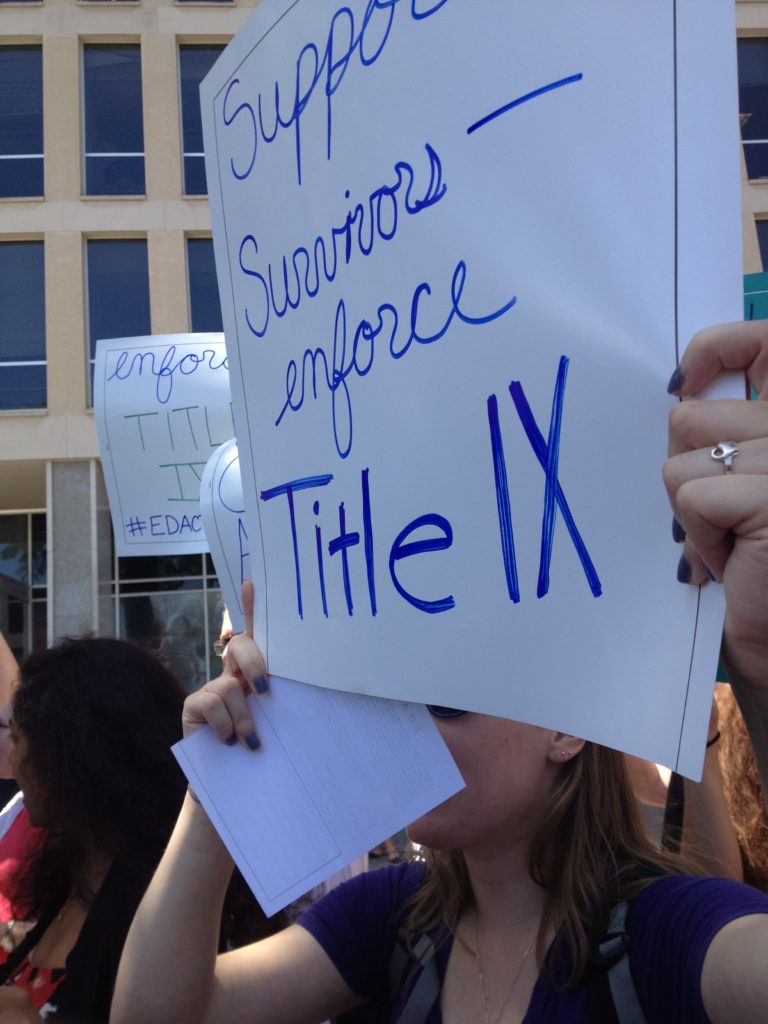 The acting head of the Office for Civil Rights (OCR) at the U.S. Department of Education, Candice Jackson, made headlines last week for her dangerous remarks about college sexual assault. Jackson was quoted in The New York Times as saying, “Rather, the accusations — 90 percent of them — fall into the category of, ‘We were both drunk, we broke up, and six months later I found myself under a Title IX investigation because she just decided that our last sleeping together was not quite right.'”
The acting head of the Office for Civil Rights (OCR) at the U.S. Department of Education, Candice Jackson, made headlines last week for her dangerous remarks about college sexual assault. Jackson was quoted in The New York Times as saying, “Rather, the accusations — 90 percent of them — fall into the category of, ‘We were both drunk, we broke up, and six months later I found myself under a Title IX investigation because she just decided that our last sleeping together was not quite right.'”
Those words are appalling, and Stop Street Harassment strongly condemns them.
As a national nonprofit organization working to end gender-based street harassment worldwide, we’re keenly aware that the public sexual harassment that we’ve documented for years doesn’t happen in a vacuum: It is part of a broader rape culture that minimizes and perpetuates sexual violence, including on college campuses.
At its core, street harassment is about exerting power over someone else, disrespecting them, and in most cases sexually objectifying a person without consent. It is on the same spectrum of behavior as sexual assault and rape. Indeed, our societal acceptance of street harassment – often regarded as the price women and LGBTQ people pay for being women and/or LGBTQ – reflects a culture that normalizes disrespect, accepts unsolicited comments about another person’s body, and tells perpetrators that their actions, however unconscionable, are okay.
Despite what people like Jackson claim, sexual harassment and violence aren’t okay, made-up, or the victim’s fault – not when we’re talking about street harassment, and certainly not when we’re talking about college sexual assault. We demand better from our nation’s public officials and will continue to speak out when they make such damaging statements.
Signed,
The Stop Street Harassment Board of Directors
(Thanks to our board member Patrick McNeil for drafting this!)
